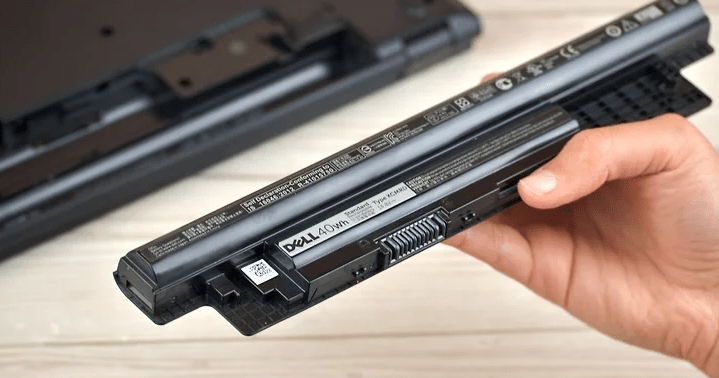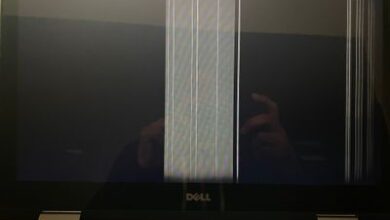How To Fix Laptop Turns Off When Unplugged? Best Info In 2024

In an era laptop turns off when unplugged dominated by digital connectivity and mobility, laptops have become indispensable tools for work, study, and leisure. These versatile devices offer unparalleled convenience, allowing users to access information, communicate with others, and accomplish tasks from virtually anywhere. However, despite their myriad benefits. Laptops are not immune to occasional glitches and technical hiccups that can disrupt their seamless operation.
One such frustrating issue that many laptop users encounter is the sudden shutdown of their devices when unplugged from a power source. This perplexing phenomenon can occur without warning, leaving users bewildered and inconvenienced. In this comprehensive guide. We delve into the underlying causes of this problem and provide practical solutions to help users resolve it effectively.
From understanding the factors contributing to sudden shutdowns to implementing preventive measures and seeking professional assistance when needed. This article offers a holistic approach to addressing the issue of laptops turning off when unplugged. By empowering users with knowledge and actionable steps. We aim to ensure that laptops remain reliable companions for productivity, creativity, and entertainment in the digital age.
Understanding The Issue: Why Laptops Turn Off When Unplugged?
In today’s digital age, laptops have become indispensable tools for work, study, and leisure. However, encountering unexpected shutdowns can be a frustrating experience for users, especially when their laptops turn off abruptly upon being unplugged from a power source. In this comprehensive guide, we delve into the reasons behind this perplexing issue and explore effective solutions to resolve it.
Why Does My Laptop Turn Off As Soon As I Unplug It?
One of the most common complaints among laptop users is the phenomenon of their devices shutting down immediately after being unplugged. This abrupt power loss can disrupt workflow and raise concerns about the health of the laptop’s battery and internal components.
Possible Causes:
- Battery Health: A deteriorating battery may no longer hold a sufficient charge, leading the laptop to shut down instantly when disconnected from the power source.
- Software Glitches: Certain software or drivers may be misconfigured or malfunctioning, causing the system to react erratically to changes in power status.
- Power Settings: Incorrect power settings or profiles may be configured in the operating system, prompting the laptop to shut down prematurely upon disconnection from AC power.
Common Causes Of Sudden Shutdowns
To address the issue effectively, it’s crucial to identify the underlying causes of sudden shutdowns when a laptop is unplugged. By understanding these factors, users can take proactive steps to mitigate the problem and ensure uninterrupted productivity.
Battery Health Matters
A primary factor contributing to laptops turning off when unplugged is the condition of the battery. Over time, lithium-ion batteries degrade due to regular usage and charging cycles. As a result, their capacity to hold a charge diminishes, leading to reduced battery life and sudden shutdowns when the laptop is unplugged.
Software Glitches
Software-related issues can also trigger unexpected shutdowns on laptops. Outdated drivers, incompatible software installations, or corrupted system files may disrupt the normal operation of the laptop, causing it to shut down unexpectedly when transitioning from AC power to battery power.
Hardware Culprits
Faulty hardware components can exacerbate the problem of laptops turning off when unplugged. Issues with the motherboard, power supply unit, or charging circuitry can disrupt the power delivery mechanism, leading to erratic behaviour and sudden shutdowns.
Overheating Concerns
Heat management is critical for the reliable operation of laptops. Excessive heat buildup, often exacerbated by prolonged usage or inadequate ventilation. Can trigger thermal throttling mechanisms that force the laptop to shut down to prevent damage to internal components.
Troubleshooting Steps To Address The Issue
To diagnose and resolve the issue of laptops turning off when unplugged, users can follow a systematic approach to troubleshooting. By performing a series of checks and adjustments, it’s possible to identify the root cause of the problem and implement corrective measures accordingly.
- Check Battery Health: Utilize built-in diagnostic tools or third-party software to assess the health and capacity of the laptop’s battery. If the battery is degraded, consider replacing it with a new one to restore normal operation.
- Update Drivers and Software: Ensure that all device drivers and software applications are up to date. Check for updates from the manufacturer’s website or utilize automated tools to identify and install the latest updates.
- Adjust Power Settings: Review the power settings and power management profiles configured in the operating system. Opt for balanced or power-saving modes to optimize battery life and prevent premature shutdowns.
- Inspect Hardware Components: Physically inspect the laptop for any signs of damage or malfunctioning hardware components. Pay particular attention to the battery, charging port, and cooling system for any visible abnormalities.
- Monitor Temperature Levels: Use monitoring software to track the temperature levels of critical components such as the CPU and GPU. Take measures to improve ventilation and airflow to prevent overheating-related shutdowns.
Preventive Measures To Avoid Future Issues
In addition to troubleshooting existing problems, adopting preventive measures can help mitigate the risk of laptops turning off when unplugged in the future. By following these best practices, users can prolong the lifespan of their laptops and maintain optimal performance.
- Regular Maintenance: Perform routine maintenance tasks such as cleaning the laptop’s vents and fans to prevent dust buildup and ensure proper airflow. Additionally, periodically calibrate the battery to optimize its performance and longevity.
- Battery Conservation: Avoid exposing the laptop to extreme temperatures, as high temperatures can accelerate battery degradation. Similarly, refrain from overcharging or fully discharging the battery, as these practices can adversely affect its health.
- Update Operating System: Stay up to date with the latest software updates and patches released by the operating system vendor. These updates often include bug fixes and performance improvements that can address underlying issues causing sudden shutdowns.
- Use Genuine Accessories: When replacing batteries or chargers, opt for genuine OEM (Original Equipment Manufacturer) accessories recommended by the laptop manufacturer. Substandard or counterfeit components may not provide adequate performance or compatibility.
Seeking Professional Help
If the issue persists despite troubleshooting attempts, it may be necessary to seek professional assistance from authorized service centers or technicians specializing in laptop repairs. Professional diagnosis and repair can identify hidden hardware issues and provide lasting solutions to prevent recurrent shutdowns.
Conclusion
The problem of laptops turning off when unplugged can stem from various factors ranging from battery degradation to software glitches and hardware malfunctions. By understanding the underlying causes and following the recommended troubleshooting steps and preventive measures outlined in this guide, users can effectively address the issue and enjoy uninterrupted usage of their laptops.
Additionally, seeking professional help when needed can provide further insight and assistance in resolving complex issues. With proper care and maintenance, laptops can remain reliable companions for work, study, and entertainment, delivering consistent performance and productivity.




